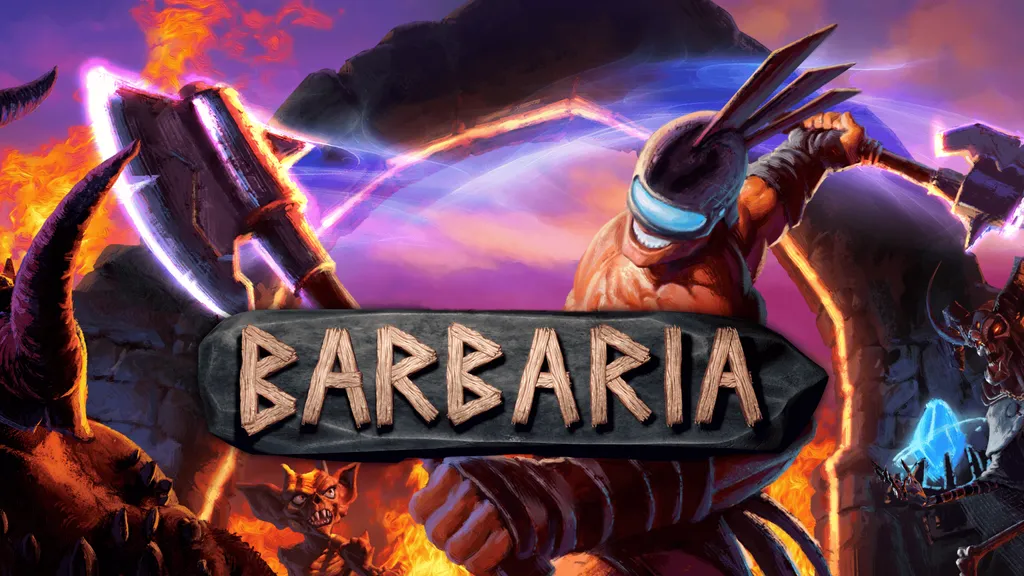Barbaria charges onto Quest 2, Quest Pro and PC VR today. Read on for our full Barbaria review.
Violence is in no short supply in VR.
Looking at the most popular genres of the medium, physics-based combat simulators consistently rank high. Offering a visceral experience that real life should (hopefully) never provide, virtual reality allows players to live out their deepest Russell Crowe fantasies from the comfort and safety of their own living rooms. Despite the popularity, substantive gameplay in the physics-based combat simulator genre can be hit or miss and lasting enjoyment tends to depend on how long you’ll enjoy playing in the game’s sandbox.
With Barbaria, Stalwart Games are leveling a steely gaze and taking aim at this cliché. With a lot more to offer than the average physics-based hack-n-slash, Barbaria might just have found the secret sauce to turning broadly entertaining carnage into a more well-rounded and satisfying experience.
Violence Allsorts
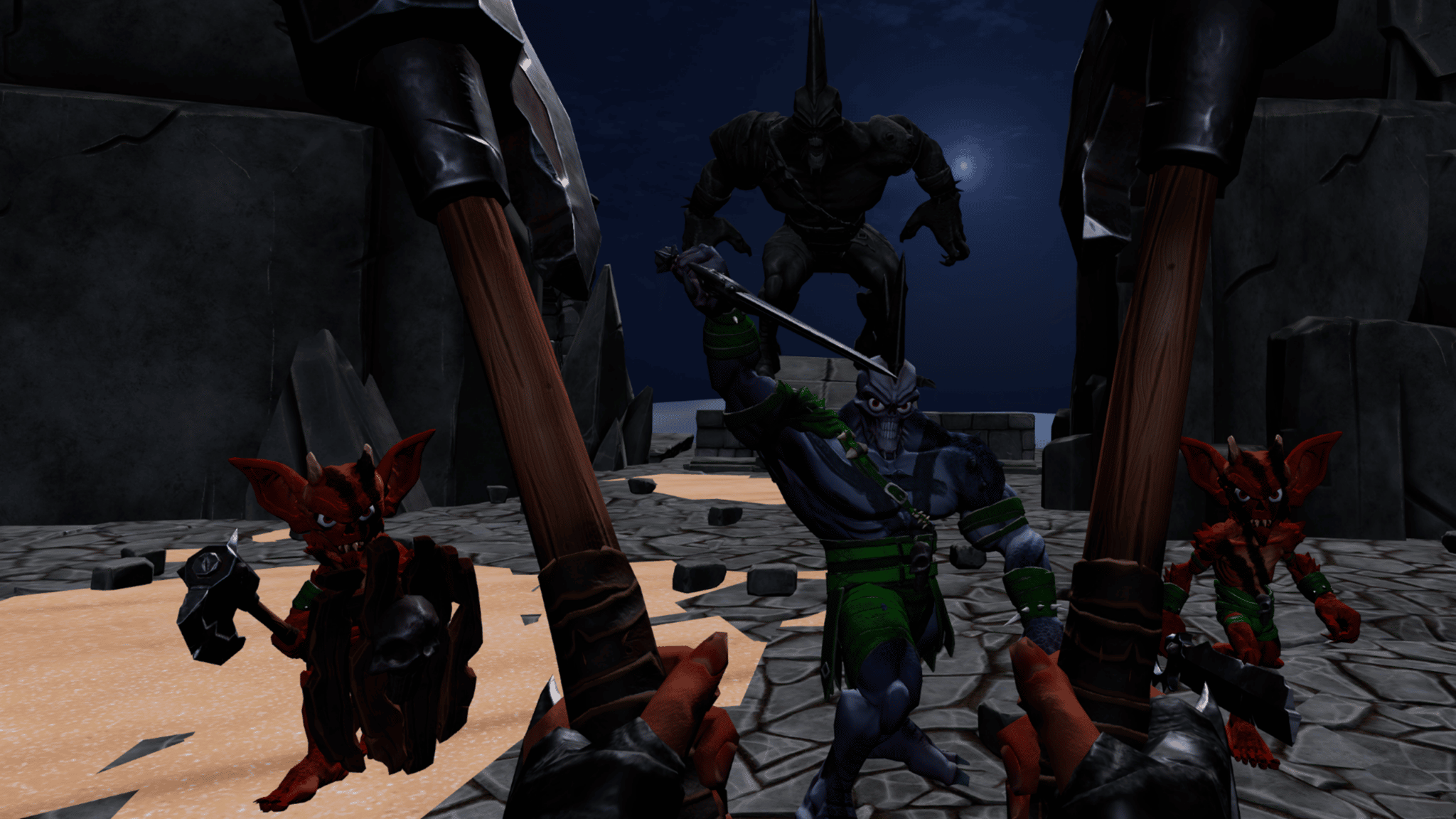
Conceptually, Barbaria is a bit of a mixed bag, which ends up being one of the game’s greatest strengths. It offers a combination of straightforward “physics-lite” combat, asynchronous multiplayer raiding and diorama-style tactical tower defense, with gameplay split into offensive or defensive modes that the player can freely switch between.
Those who prefer to dive straight into the action can choose to raid strongholds of other online players or face off against AI opponents in an endless wave-based arena. You can also tackle combat challenges that pit your skills against one particular brutality or another, or a more defense-focused combat mode where players can jump into their own realm and beat back tides of AI-driven aggression.
Outside of combat, players can summon their home realm and spend time working on their defenses. Players are gradually awarded a range of fully upgradable items necessary to build an appropriately imposing and impenetrable fortress. Traps, obstacles, weapons, minions and an assortment of uniquely-powered heroes can be placed and moved around the board, allowing you to test different strategies over time. The aforementioned defensive challenges are a really great way to marry these base building elements with combat, allowing players a real time view of the defensive strategies that are working and those that are not. Combat always remains at the centre of the game, but these other elements add depth and nuance to what otherwise might have just been another gore sandbox.
There is a lot going on in Barbaria and as such it always feels like there’s something to do. However, this is entirely driven by the player – there’s no guiding narrative and no structured path to follow in order to “beat” the game. Rather, Barbaria gives you a range of gameplay options set within an exponential progression system and allows players to make of that what they will. Thanks to the asynchronous multiplayer system, as long as there are other players refining their defensive realms or plundering yours, there will always be another challenge waiting in the next session.
Getting to Grips
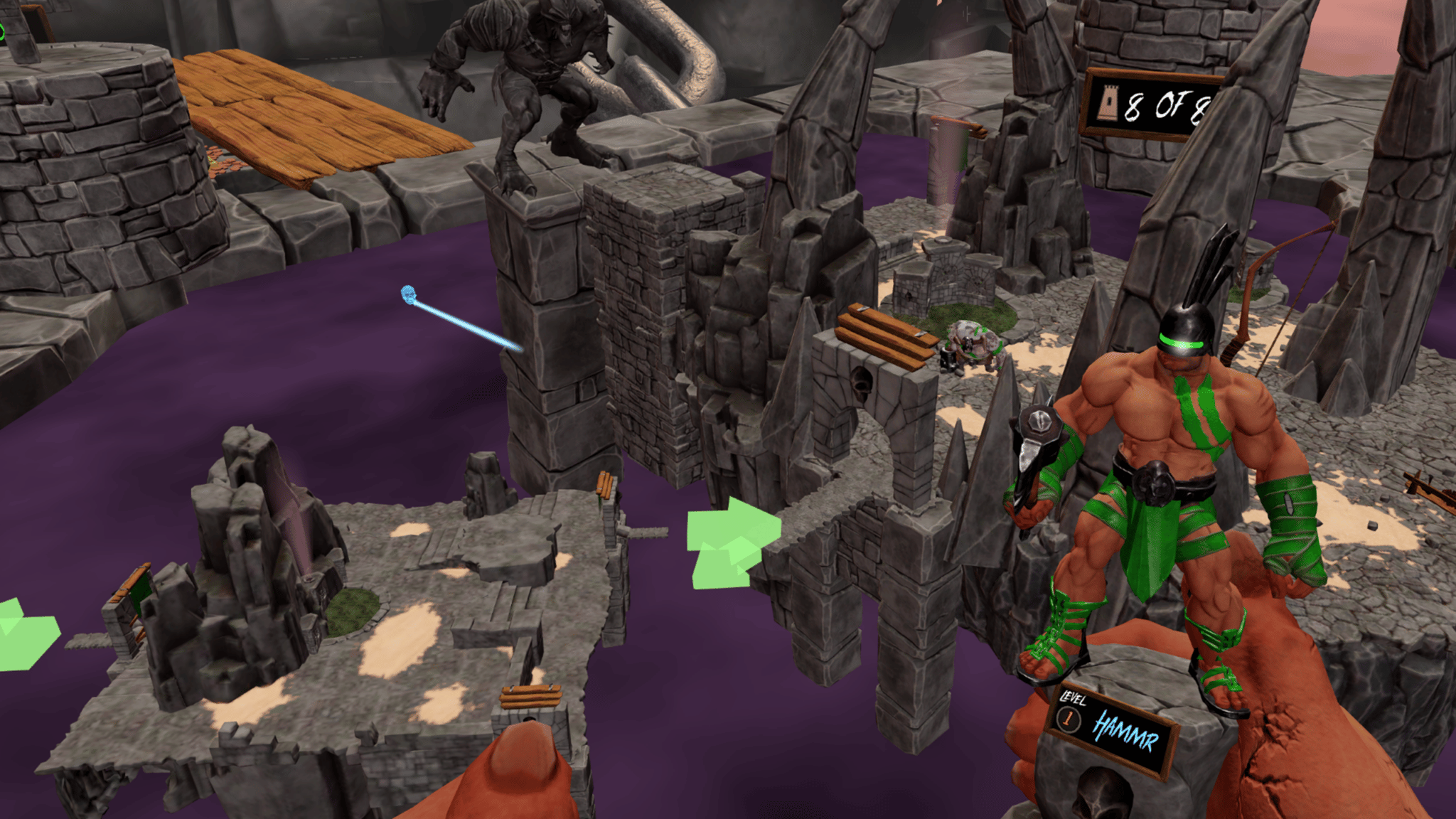
At its core, Barbaria shares a reasonable amount of DNA with the likes of Gorn. Combat is predominantly melee-based, with a healthy side order of ranged medieval weaponry and a dollop of magic for good measure. While not as overtly comical as Gorn, thankfully the combat does not take itself as seriously as games like Blade & Sorcery or Swordsman VR.
There are a variety of enemies and heroes to face off against, each with their own distinct characteristics. Depending on their level, each enemy character has enough attack animations to keep players on their toes. Blocking and parrying are essential skills to master, as predicting combos is often the difference between life and death.
There is a decent arsenal of upgradable weapons, each with strengths and weaknesses against enemy types as well as the ability to hurl around debris with (aim-assisted) accuracy. You can also leave the playing field in favor of a god view, looking down on the battlefield from above and allowing you to deploy magic that often turns the tide of battle. All of these elements come together to form a well-rounded combat system that ensures intuitive and varied gameplay throughout.
The bulk of gameplay in Barbaria is designed around asynchronously raiding the realms of other players. When you begin, you will only encounter realms with a defense rating similar to your own attack rating, thus ensuring proportionate difficulty as you progress. Your attack score will rise as you succeed in overwhelming the strategic defenses of your foes, allowing you to challenge ever more powerful realms. This creates an organic difficulty curve with an ebb and flow that encourages you to continue advancing.
You will also pick up companions as you progress, who join you on your march of conquest. Selecting the right squad and arming them correctly soon becomes a pivotal component of your offensive strategy. It is also possible to combo huge attacks by “alley-ooping” enemies over to your companions for them to effectively “dunk” with a final, crushing attack. It’s a cool touch that adds to the spirit of light-hearted fun infused across the combat system.
Rise and Grind
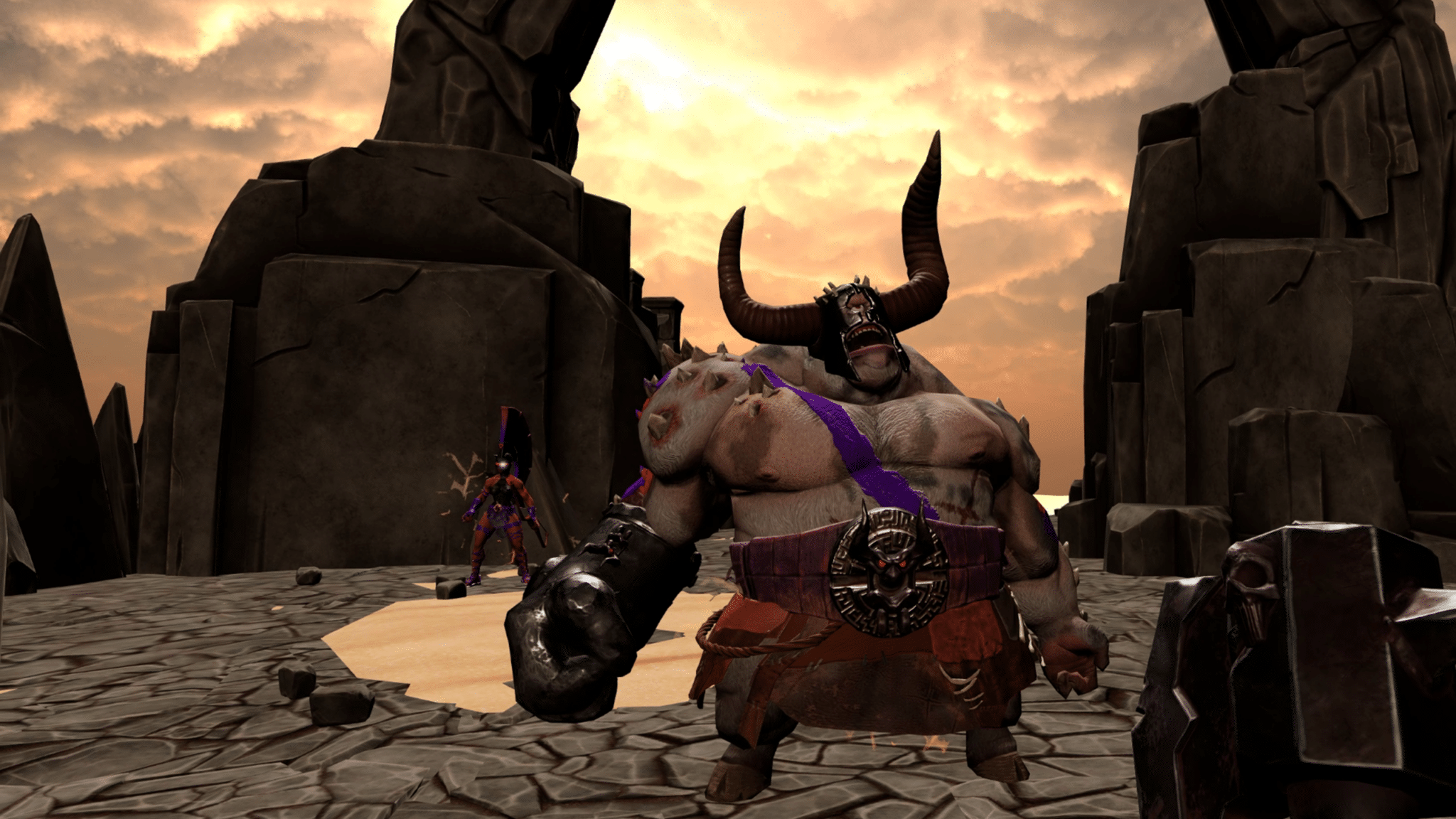
There’s also a sense of anticipation that comes with the asynchronous multiplayer that is thoroughly addictive. Every time that you log into the game you are met with a message indicating if you’ve been attacked while you were away. The knowledge that this message could be waiting for you gnaws at the subconscious while out of the game and provides a reliable hook for launching it daily, if only to check what’s happened.
You can also watch each attack back in a diorama style-replay to see where your defenses held and where your tactics were less robust. The replays are wonderfully satisfying and capture the whole affair in great detail, accurately representing your opponent and their goons as they cut a swathe of destruction through your best laid plans or crash upon the rocks of your defenses.
Unlike other games that use grindy progression systems as an artificial way of stretching out the action, Barbaria’s upgrade system is accessible and addictive. At the end of each combat encounter, players receive items or currency alongside reasonably priced upgrades, creating a neat dopamine drip feed that keeps you coming back for “just one more.”
In fact, all these components work together to create a really more-ish gameplay loop that can unconsciously devour hours. It starts with “I’ll just log on and see if I was attacked” and then moves on to “Oh, that strategy didn’t work, maybe I just need to upgrade one or two things” which quickly turns into “I’ll just grind out a couple of raids and get enough gold to upgrade my gear…”
Then suddenly it’s two hours later and your battery is dead. Insidious.
Sound and Vision
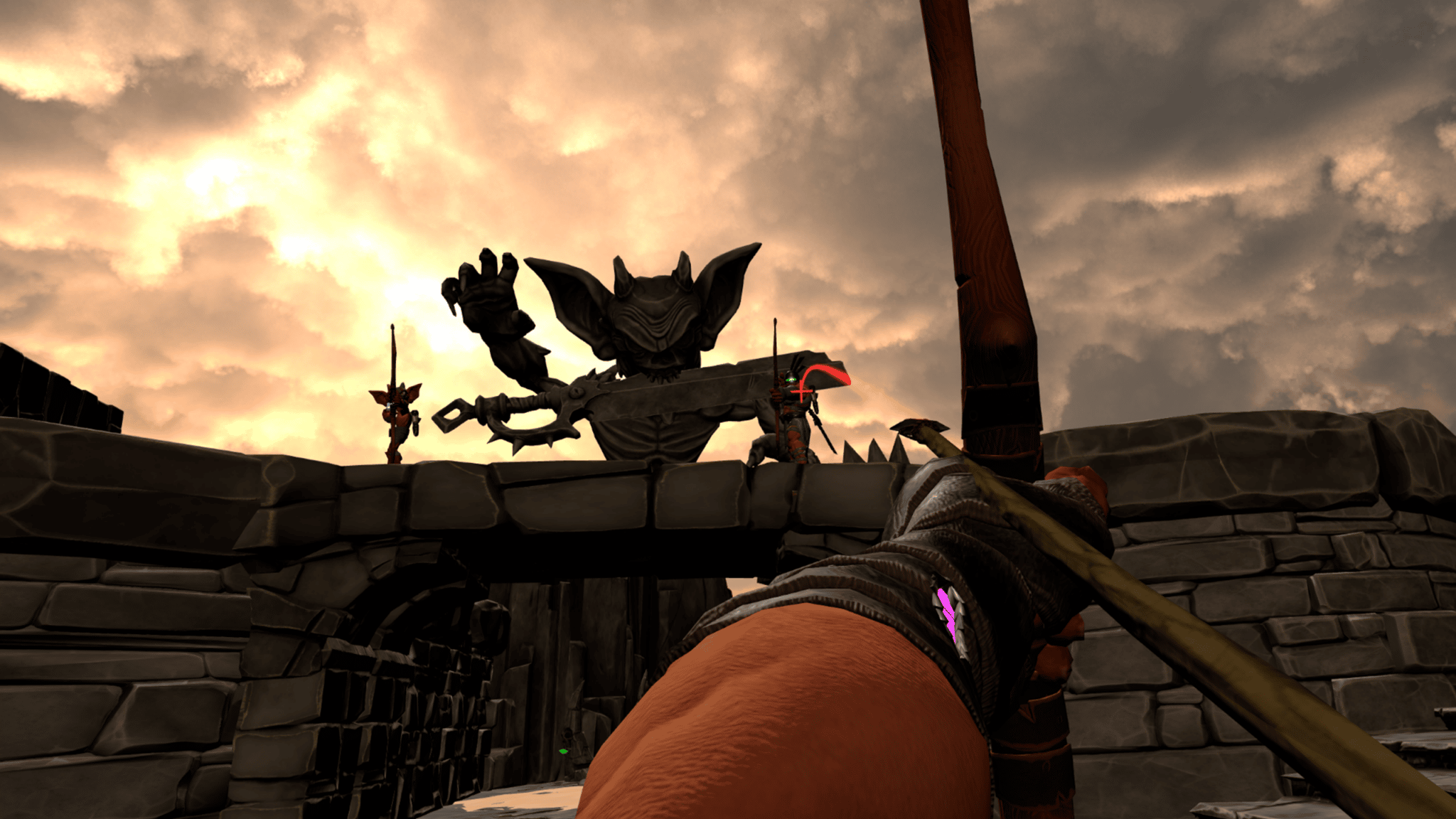
Barbaria is by no means a jaw-dropping spectacle of technical achievement, but it is a good looking game with a clear visual sense of self. The art direction – from tutorial, UI, character design to environments – delivers a style that consistently reinforces the tone of the game.
Characters are presented with a cartoonish roguishness that lowers both the stakes and the player expectations on the physics system, making the combat feel less threatening but somehow more fun. Environments are a little same-y across a pallet made predominantly of grey stonework, but it doesn’t detract from the game in any meaningful way.
The sound design is functional and efficient without being overtly noteworthy. Sound effects and spatial audio make it easy to understand what’s happening around you without needing to constantly check over your shoulder. The music is appropriately full of character, if somewhat limited in breadth. A few hard rock riffs drive you through combat, artfully juxtaposed against the jazzy lounge tunes that occupy the home world.
Barbaria only offers artificial locomotion, with no teleport options available for players more acutely susceptible to motion sickness. There are the standard comfort options, including snap/smooth turning and vignette settings. Movement isn’t particularly fast and there are no jumping, vaulting or sprinting mechanics to deal with. Nonetheless, you will need at least some proficiency with artificial locomotion in order to play comfortably.
Barbaria Review – The Final Blow
Barbaria offers an excellent blend of first-person combat and strategic tower defense gameplay. It’s a release that directly rampages into a hole in the Quest library that seemed to be waiting for a game like this. With a decent range of game modes on offer as well as an engaging and satisfying progression system, Barbaria is well worth adding to any VR action enthusiast’s library.

UploadVR focuses on a label system for reviews, rather than a numeric score. Our reviews fall into one of four categories: Essential, Recommended, Avoid and reviews that we leave unlabeled. You can read more about our review guidelines here.

